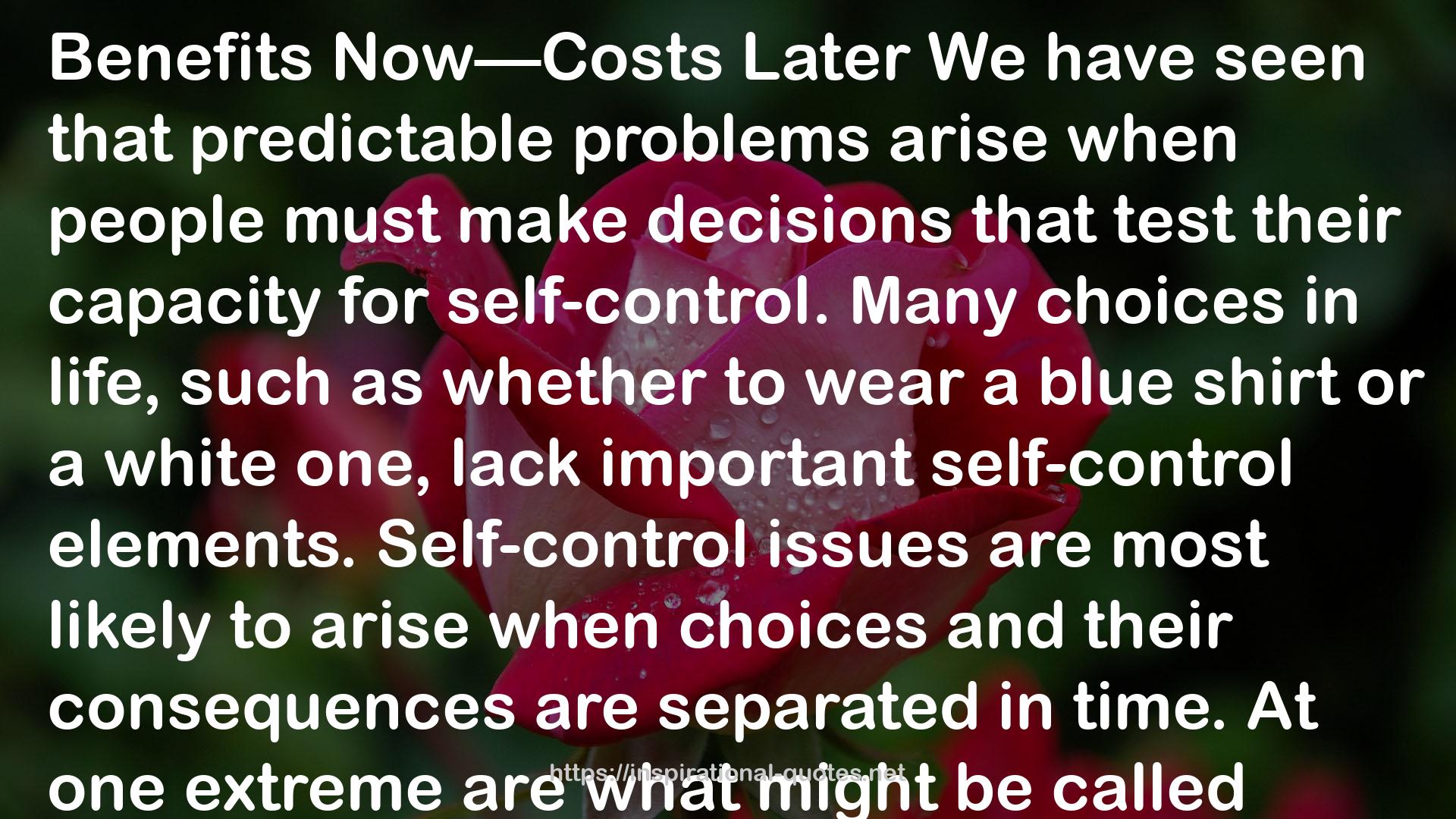" Benefits Now—Costs Later We have seen that predictable problems arise when people must make decisions that test their capacity for self-control. Many choices in life, such as whether to wear a blue shirt or a white one, lack important self-control elements. Self-control issues are most likely to arise when choices and their consequences are separated in time. At one extreme are what might be called investment goods, such as exercise, flossing, and dieting. For these goods the costs are borne immediately, but the benefits are delayed. For investment goods, most people err on the side of doing too little. Although there are some exercise nuts and flossing freaks, it seems safe to say that not many people are resolving on New Year’s Eve to floss less next year and to stop using the exercise bike so much. At the other extreme are what might be called sinful goods: smoking, alcohol, and jumbo chocolate doughnuts are in this category. We get the pleasure now and suffer the consequences later. Again we can use the New Year’s resolution test: how many people vow to smoke more cigarettes, drink more martinis, or have more chocolate donuts in the morning next year? Both investment goods and sinful goods are prime candidates for nudges. Most (nonanorexic) people do not need any special encouragement to eat another brownie, but they could use some help exercising more. "
― Richard H. Thaler , Nudge: Improving Decisions About Health, Wealth, and Happiness
